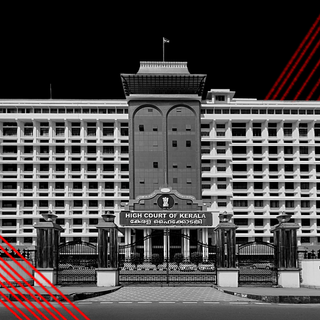In a significant observationon Friday, the Kerala High Court held that marital rape is a valid ground for claiming a divorce, even though marital rape is not penalized in India. Such conduct falls in the frame of “mental and physical cruelty,” the court noted.
The bench, constituting Justices A. Muhamed Mustaque and Kauser Edappagath, was hearing the petition of a man who objected to a divorce judgment by a family court. The respondent-wife had faced harassment and cruelty, the family courtnoted. The wife allegedly was forced to have sex even when she was sick, bed-ridden, on the day her mother died, and even forced to engage in sexual intercourse in front of their daughter.
“Merely for the reason that the law does not recognize marital rape under penal law, it does not inhibit the court from recognizing the same as a form of cruelty to grant divorce. We, therefore, are of the view that marital rape is a good ground to claim divorce,” the court said.
Currently, marital rape is “legal,” in that although rape is criminalized under the law, an exception to the law states that unwilling sexual intercourse with a wife who is more than 15 years of age will not be consideredrape. A 2017 petition in the Supreme Court led to the age bar being raised to 18, but it did not criminalize the offense itself.
As a result, India remains one of the only 36 countries in the world where marital rape is not criminalized by law. The lack of criminalization also means that there are no official statistics on the incidence of marital rape in national criminal records. However, the National Family Health Survey (NFHS) – 4 released by the government in 2018 revealed that marital rape remains one of the most common form of sexual violence experienced by married women in India.
The current judgment is crucial in framing the mental trauma due to maritalrape as a reason for divorce. At present, marital rape is not a ground for divorce under the Hindu Marriage Act, 1955, the Muslim Personal Law (Shariat) Application Act, 1937, and the Special Marriage Act, 1954.
“Sex in married life is the reflection of the intimacy of the spouse. The evidence given by the woman clearly establishes that she was subjected to all kinds of sexual perversions,” the bench said.
Related on The Swaddle:
Why It’s Still Legal For Indian Men to Rape Their Wives
Marital rape, the court noted, occurs when the husband is under the notion that the wife owes her body to him.
So far, all challenges to the law have been met with stubborn refusal by the government to criminalize marital rape. “Defining marital rape would call for a broad-based consensus of the society. What may appear to be marital rape to an individual wife, it may not appear so to others,” the Union government had said in its submissions to the Delhi High Court in a related case in 2017.
Other submissions include the idea that criminalizing the act would destabilize the institution of marriage, and that husbands are entitled to intercourse with their wives.
Even representatives of the judiciary have previously upheld outdated notions of the sanctity of families in connection with marital rape: “It will create absolute anarchy in many families. Our country is sustaining because of the family platform. We still have family values,” the former Chief Justice of Indiasaid at a conference.
Many of the arguments that have stood in the way of recognizing marital rape as a crime have been rooted in ideas of Indian culture, the sanctity of marriage, and fears around women “misusing” the law if it is criminalized.
The only remedy that existed for women so far was through the Protection of Women from Domestic Violence Act 2005 (PWDVA), which outlaws marital rape but only consigns civil (and not criminal) remedies for it.
The current observation helps put things into perspective. “Treating a wife’s body as something owing to husband and committing sexual acts against her will is nothing but marital rape,” the bench noted.
“A spouse in a marriage has a choice, a choice not to suffer, which is fundamental to the autonomy guaranteed under natural law and the Constitution. Law cannot compel a spouse to suffer against his or her own wish by denial of divorce by the Court.”
The observation formally recognizes that non-consensual sex is not in-built into the institution of marriage — and that violating a spouse’s consent constitutes a legitimate reason to leave it.




